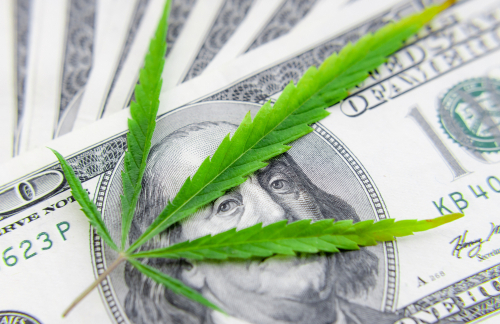The State of Illinois saw a massive 50 percent increase in total tax reported from adult-use cannabis over the past year.

Specifically, tax revenue went from $297.7 million in fiscal year 2021 to $445.3 million in fiscal year 2022. Overall, total adult-use cannabis sales also rose 50 percent, increasing from $1 billion in 2021 to $1.5 billion in 2022. In addition, cannabis tax disbursements to local governments jumped 77 percent, from $82.8 million in fiscal year 2021 to $146.2 million in fiscal year 2022.
“Illinois has done more to put justice and equity at the forefront of this industry than any other state in the nation and has worked to ensure that communities hurt by the war on drugs have had the opportunity to participate,” Illinois Gov. JB Pritzker said. “The $1.5 billion in sales of adult-use cannabis in Illinois translates into significant tax revenue with a portion of every dollar spent being reinvested in communities that have suffered for decades.”
Illinois law mandates that 25 percent of tax revenue generated by adult-use cannabis sales must support communities that are economically distressed, experience high rates of violence, and have been disproportionately impacted by drug criminalization.
“Legalizing cannabis for adults has been a wise investment for the Illinois economy, and sales have continued to rise, leading to additional revenue for the state,” State Senate Majority Leader Kimberly Lightford said. “Consistent cash flow from the cannabis industry assists the state with funding essential services such as violence prevention, mental health, and local government.”
The state has awarded $113.5 million in grants to date from funds generated from taxes on adult-use cannabis sales. The money is used to invest in underserved communities through Illinois Criminal Justice Information Authority’s Restore, Reinvest, and Renew (R3) Program.
“These much-needed resources for communities impacted by the drug war are the exact reason why policymakers who understand the pain and trauma being experienced by community is vital,” State Rep. Jehan Gordon-Booth (D-Chicago) said. “This isn’t just happening. These directed resources were the result of intentional policy decisions to begin repairing harm. But this is just the beginning. I am eager to see newly licensed Black businesses get a slice of the pie.”
Illinois Department of Revenue (IDOR) Director David Harris said the cannabis industry continues to have a positive impact on the state’s economy.
“It has created hundreds of jobs at cultivation centers and dispensaries throughout the state, and tax revenue generated continues to flow to local governments, help with drug programs and treatments, and is also being reinvested back into the communities that need it the most,” Harris said.